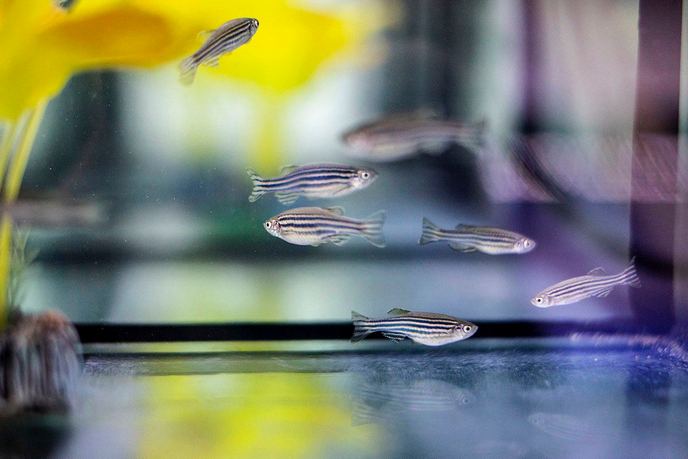Zebrafish in the frontline for personalised anticancer treatment
Zebrafish(opens in new window) (Danio rerio) is a very good model organism for research because of its transparency, genetic similarity to humans and excellent genomic characterisation. It also has a very fast life cycle, facilitating the delineation of many biological processes from early development to adulthood. Moreover, zebrafish can absorb molecules dissolved in water, making it suitable for drug target discovery and toxicological studies.
Zebrafish for testing drug efficacy
The EU-funded ZEBRAONCOFISH(opens in new window) project has taken zebrafish avatars to another level, using them to test the efficacy of specific anticancer treatments. Many molecular pathways associated with tumour progression are similar in mammals and zebrafish. “The idea is to microinject cancer cells from patients with colorectal and lung cancer into zebrafish larvae and apply several drug treatments – monotherapy or drug combinations,” explains Roberto Díez-Martínez, ZEBRAONCOFISH coordinator. The readout in the transparent embryos will follow the in vivo behaviour of the primary tumour or the formation of metastases through imaging. The zebrafish platform is still under development by Ikan Biotech, a Spanish biotechnological company leader in the development of novel, tailor-made solutions based on in vivo zebrafish assays. Partners are confident that the platform will be ready soon and are interested to extend its use to understand cancer biology and design tailor made treatments for each patient. To do so, they plan to obtain a complete profile of any given tumour following drug administration, including the fate of specific mutations or other genetic changes, as well as migration and angiogenesis. By assessing specific stem cell markers, scientists will delineate the mechanisms underlying resistance to specific treatments, while through epithelial/mesenchymal transition markers they will obtain important information on the metastatic activity of the tumour. The in vivo monitoring of these attributes will portray different tumour profiles enabling physicians to make informed decisions on patient treatment.
The zebrafish model in the pharma industry
The zebrafish model is gaining ground in the pharmaceutical industry for preclinical drug testing, mainly because of the low husbandry cost and time efficiency compared with mammalian models. Despite these advantages, zebrafish are not routinely used to support the selection of the best cancer treatment. “There are a number of hurdles that need to be overcome, such as the manual injection of patient cells known as xenotransplantation(opens in new window),” emphasises Díez-Martínez. For screening the most common chemotherapy drugs approved for clinical use with statistical relevance, at least 180 fish would be required: a minimum of 20 combinations of drugs should be analysed, each one to be tested with at least three zebrafish and in triplicate. Such high-throughput analysis not only increases the cost, but is expected to delay results delivery, rendering zebrafish unsuitable for patient-directed interventions. Considering there are millions of cancer patients worldwide who respond differently to the same treatment, there is a pressing need for a means to predict treatment outcome. “The ZEBRAONCOFISH platform has been designed to address heterogeneity and genetic evolution in primary tumour cells, offering an indispensable tool for the therapeutic assessment of molecules, including dose response, toxicity and pathway discovery,” concludes Díez-Martínez. Although further optimisation is required for its clinical implementation, zebrafish undoubtedly provides many advantages in cancer research compared with traditional models.







